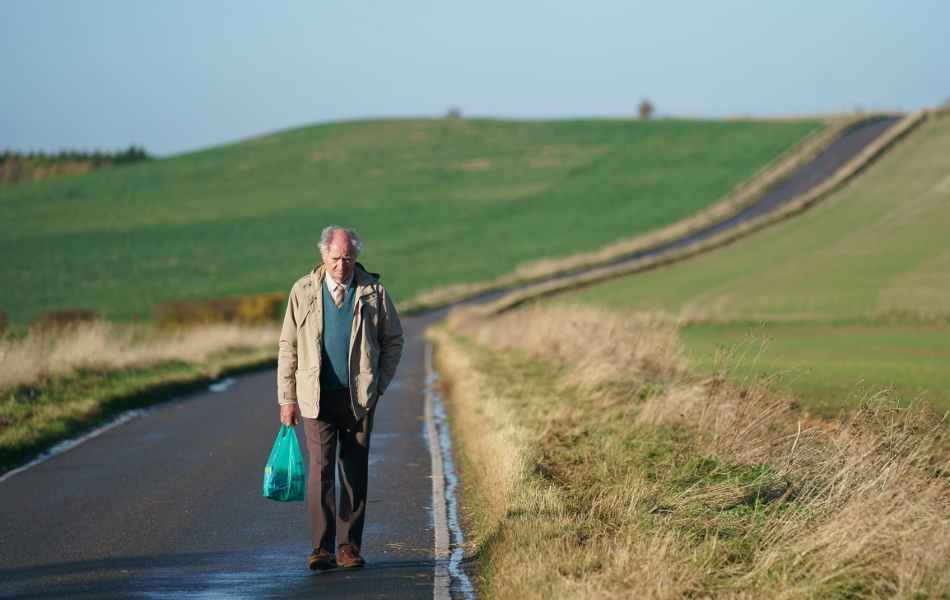The Unlikely Pilgrimage of Harold Fry: The Ageing English Man in Search for Meaning – film analysis

Harold Fry (Jim Broadbent) in "The Unlikely Pilgrimage of Harold Fry" directed by Hettie Macdonald, produced by Kevin Loader, 2023.
Image credit: “The Unlikely Pilgrimage of Harold Fry” directed by Hettie Macdonald, produced by Kevin Loader, 2023.
Written by: Luis Freijo
It is breakfast time and English retiree Harold Fry (Jim Broadbent) receives a letter in the post. The letter comes from Queenie, an old friend and ex-co-worker, who informs him that she is terminally ill and says goodbye. Shocked by the news, Harold comes up with an unlikely determination: he will walk the length of England to the town where Queenie (Linda Basset) is spending her last days, and for as long as he walks, she will live. Along the way, a journalist picks up on Harold’s story, and he becomes a social media celebrity that gathers a host of people following his pilgrimage. Meanwhile, Queenie waits at the hospice, and Harold’s wife Maureen (Penelope Wilton) waits at home, unsure of what to do about her husband’s journey.
The Unlikely Pilgrimage of Harold Fry might at first sight be classified among a host of heritage British films dealing with celebrations of the British identity in recent years. Features such as The Duke (2020), Allelujah (2023), Victoria & Abdul (2017), Downton Abbey (2019) or Darkest Hour (2018) have produced more or less unproblematic takes on what it means to be British (and, especifically, English) in the years after the Brexit vote, with ageing stars such as Broadbent, Judi Dench, Helen Mirren or Maggie Smith embodying the resilient and jovial character of the quintessential English citizen. And, indeed, Harold Fry was marketed as one of these films due to the leading presence of Broadbent and his character’s journey through England and encounters with a community of citizens.
However, The Unlikely Pilgrimage of Harold Fry departs from an uncomplicated view of England to focus instead on the search for meaning of ageing Harold. The physical demands of his several-weeks trek, which are highlighted by a narrative that dwells on the scenes of walking and by the performance of Broadbent, intersect with a walk backwards in memory, towards Harold’s failures as husband and father. The England that Harold walks through gets blurred and its identity is questioned, through encounters with an immigrant doctor who can only get work as a cleaner because no one will hire her, a young drug addict who Harold cannot save, a group of pilgrims that devalue rather than enhance Harold’s walk, and Queenie herself, in an anticlimactic, awkward reunion. Harold is detached from these environments through a work of mise-en-scène and cinematography in which the light gets very saturated and the depth of field is shallow, which signals the inner rather than outer nature of Harold’s journey. There is perhaps a comment in the film on the inter-generational problems in the UK highlighted by Brexit, and what might be perceived as a failure of the ageing generation in steering the country out of the European Union, but ultimately it is the focus on memory and meaning that is conveyed through the ageing stardom of Jim Broadbent.
Related films:
- The Unlikely Pilgrimage of Harold Fry is a 2023 British drama film directed by Hettie Macdonald. It starrs Jim Broadbent.
All the videos on this page are not hosted on the AGE-C Portal server but are only inserted as links.
All copyrighted materials included on this website are used for educational purposes in accordance with fair use guidelines.